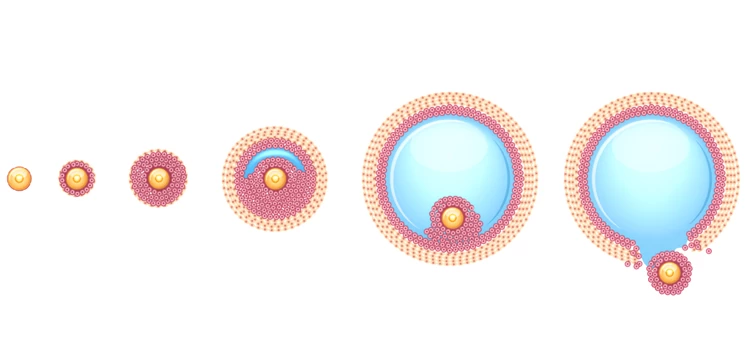Surrogacy is a modern fertility treatment in which embryos created through IVF are carried by a surrogate mother, offering hope to couples struggling with infertility. This process requires strict medical care, a healthy lifestyle, emotional support, and a clear legal contract to protect all parties. While surrogacy carries risks such as gestational diabetes, preeclampsia, and preterm delivery, proper care ensures safe outcomes.
Surrogacy in Egypt: A Conflict Between Religious Beliefs and Advancements in Reproductive Technology
Surrogacy is illegal in Egypt due to strong opposition from religious scholars who view it as clashing with Islamic law. There are no specific laws banning or supporting surrogacy, making it effectively prohibited. Cultural pressures, especially on women, to have children, increase the demand for surrogacy. Therefore, many infertile Egyptian couples pursue the treatment in other countries like Jordan, Lebanon, and Iran.
Surrogacy in China has been officially illegal since 2001; however, Chinese underground clinics continue to operate due to rising infertility rates, lax enforcement in some regions, and increasing social pressure to have children in the country. The practice raises serious ethical problems, especially regarding the potential exploitation of poor and uneducated women. It also may lead to legal risks for both surrogate mothers and intended parents, particularly in custody issues. Public opinion on surrogacy is mixed in China; some see it as a hopeful option, while others believe it is morally wrong. As a result, many Chinese couples seek surrogacy abroad in countries like Iran, where the process is legal and more affordable.
In Iran, surrogacy is carried out under specific religious and legal frameworks and is only permitted under legal conditions and the supervision of fertility centers. This method allows infertile couples to have a child, but adherence to the legal and religious regulations for the donor, surrogate mother, and the intended family is essential. This article examines the laws, medical procedures, and necessary conditions for surrogacy in Iran, providing prospective parents with the information needed to make informed decisions.
The best countries for surrogacy may differ in laws, costs, and medical quality. The USA and Canada are known for advanced infertility clinics and legal protection, though costs are high and Canada only allows altruistic surrogacy. In Europe, Ukraine, Georgia, Greece, and Russia provide clear laws and affordable options. Iran is recognized as the most affordable and culturally accepted surrogacy destination in Asia, offering modern IVF clinics and strong legal guidelines. Jordan also appeals to married Muslim couples with low costs.
Surrogacy in Islam is a debated topic with different views among scholars. Most Shiite scholars allow it under certain rules, like using the couple's own sperm and egg and avoiding any forbidden contact. They also emphasize having a fair contract. In contrast, many Sunni scholars oppose surrogacy due to worries about confusion over family lineage and moral issues. Generally, Islamic law recognizes the biological parents as the legal parents, and the surrogate has no rights to the child.
Surrogacy laws in India have undergone significant changes in recent years. Once known for affordable options, India banned commercial surrogacy in 2022 due to ethical concerns and the exploitation of vulnerable women. Now, only altruistic surrogacy is allowed, which is limited to married Indian couples who cannot conceive naturally. The surrogate must be a close relative, married, between the ages of 25 and 35, and have had at least one successful pregnancy. Foreigners, single individuals, and same-sex couples are not eligible for surrogacy in India, and only medical and legal expenses can be covered.
Surrogacy in the United States is a widely used method for infertility treatment but comes with legal, financial, and ethical complexities. There is no nationwide surrogacy law, and rules vary from state to state—some states fully support surrogacy, while others ban it entirely. The surrogacy process involves working with agencies, legal contracts, and high medical costs, often ranging from $70,000 to $150,000, making it one of the most expensive options worldwide. In contrast, countries like Iran offer more affordable and legally structured surrogacy options.
Surrogacy laws are very different around the world. Some countries, like Iran, the United States, Ukraine, and India, allow surrogacy but have different rules. Other countries, such as France, Spain, Italy, Saudi Arabia, and the UAE, completely ban surrogacy due to religious or legal reasons. In the UK, surrogacy is allowed but only if it’s not for profit, and parents need court approval for their rights. Because of these differences, many people look for infertility treatment in Surrogacy legal countries for foreigners.
An ovarian follicle is a fluid-filled sac in the ovaries that contains one or more immature eggs. These sacs, including antral follicles, play a critical role in a woman's reproductive cycle. Several follicles, including antral follicles, start to grow at the beginning of each menstrual cycle. However, typically only one follicle reaches the point of ovulation, releasing a mature egg.









